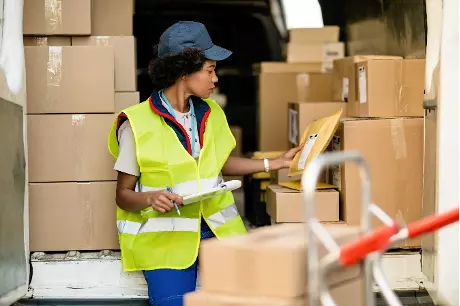By John Gathatwa
Customs control is the process where Customs inspects, verifies and examines inward and outward means of transport, goods, personal articles as well as mails and parcels according to the law to ensure the implementation of national laws and regulations concerning entry and exit of means of transport, goods, personal articles as well as mails and parcels through acceptance of declarations, document inspection, examination and release and other related management systems and procedures.
Reasons for Custom Control
Customs controls are necessary in order to protect citizens and society against illegal drugs, defective goods, dangerous substances and hazardous materials, etc., as well as to preserve the environment and cultural heritage. Kenya Revenue Authority-Customs has introduced a series of reforms to improve customs inspection and supervision, which include documents and goods verifications.

Under the guideline of “performance management” principles, KRA Customs & Border Control Department has made remarkable achievements on customs control: in Financial Year 2022/2023 Customs Taxes collected was KShs. 754.090 Billion Reflecting a growth rate of 3.5 %. Specifically, Customs Import Duty collected was KShs 129.987 Billion, a growth of 9.4%. Frontier officers work 24 hours per day in shifts behind both red and green channels.
KRA C&BC puts in efforts to adopt a comprehensive management on the self-compliance of the importers and exporters, as well as measures of helping goods transiting through Kenya and transfers to East Africa Community (EAC) Partner States. It has improved its administration over the bonded logistics. This is the clearance processes of Inland Customs areas and Customs bonded facilities.
Customs Clearance: Meaning and Process
International trade is crucial for businesses that import or export goods. The most critical steps in the processes is the Customs clearance. Customs clearance is the procedure cross border trader- must follow to legally import or export goods across international borders.
Definition of Customs Clearance
Customs clearance is the process of declaring goods to Customs authorities when entering or leaving a country. Individuals or businesses can do this. Goods subject to customs clearance include items that are being imported or exported, as well as personal effects and commercial shipments. The purpose of Customs clearance is to ensure that all applicable import duties and taxes are paid and that goods comply with all relevant regulations.
To clear Customs, businesses or individuals must provide detailed information about the shipment, including its value, origin, destination, and contents. Businesses or individuals may also be required to submit supporting documentation; such as invoices or bills of lading. Once Customs officers have cleared the shipment, they can release it for delivery.
Customs Clearance Process
Here’s a look at the customs clearance process:
- Inspection of Documents When shipments arrive at a port of entry in Kenya, they are subject to inspection by KRA-Customs & Border Control Department (C&BC). During this process, C&BC officers inspect the documents associated with the shipment to ensure that all required information is present and accurate. The most common documents required for clearance are: Manifest, Import Declaration Fee document (IDF), Customs Entry, Proof of insurance, Invoice (unless a commercial sample is worth less than $1.5), Port spending (when applicable), A packing list, Certificate of origin (when applicable), Air waybill, inland bill of lading, through bill of lading, and ocean bill of lading, Pre-shipment inspection certificate (when applicable), Transportation invoice. Once C&BC has verified all the necessary documentation, they will clear the shipment for entry into Kenya.
- Tax and Duty Payment After the shipment has been inspected and all required import documentation has been filed, the importer/exporter pay any taxes or duties owed on the goods before Customs will release them for delivery. The amount of tax and duty owed depends on several factors, including the type of goods he is importing, their declared value, and the applicable Customs laws. It is essential to be aware of the potential costs involved in importing goods so that the person can budget accordingly and avoid a late payment penalty.
- Shipment Release After Customs inspects and assess the goods, they are released from the Customs area where they have been held. The release process can vary depending on the type of imported goods but typically involves paying any Customs duties and taxes owed. Once the release paperwork has been completed, the importer can take possession of the goods and move them to their final destination. In some cases, goods may be released on a conditional basis, meaning that they must meet specific requirements before they can be moved off-site. For example, project goods exempted from payments of duties and taxes must be covered by security bonds before they are released from Customs. Ultimately, the Customs clearance process aims to ensure that all imported goods meet all applicable regulations before they enter the domestic market.
References
- World Customs Organisation (WCO) -Customs controls
- World Trade Organisation (WTO) –Trade Facilitation Agreement
- United Nations 2013: Inter-Government Agreement for Dry Ports.
Definitions
“Customs control” means measures applied by the Customs to ensure compliance with Customs law; (E8. / F11-WCO).
“Clearance” means the accomplishment of the Customs formalities necessary to allow goods to enter home use, to be exported or to be placed under another Customs procedure; (E6. / F10-WCO).
“Release of goods” means the action by the Customs to permit goods undergoing clearance to be placed at the disposal of the persons concerned; (E25. / F24-WCO).
“Dry port” refers to an inland location which serves as a logistics centre connected to one or more modes of transport for the handling, storage and regulatory inspection of goods and the execution of applicable customs control and formalities.
BLOG 11/09/2023

